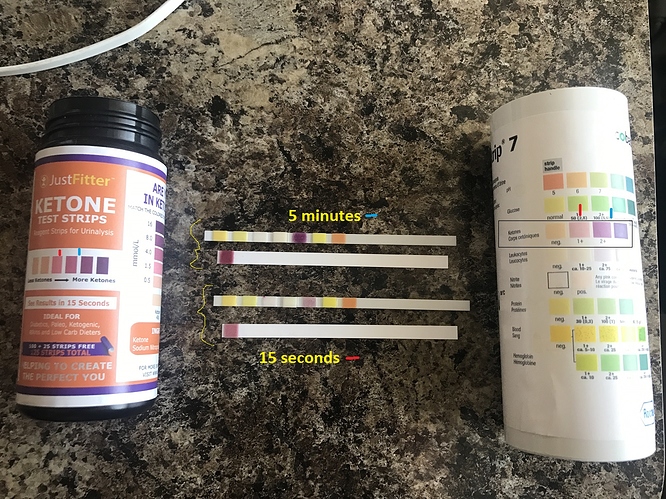My LCHF/fasting was a June / July thing. I have been LCHF since then, but pseudo non-compliant for a month. Not eating white things in any quantity but not under 20 carbs. 3 times I tested my urine … no ketones.
But i’ve been tightening the reins for say 5 days but I figured I wasn’t in ketosis (as measured by strips) as I wasn’t on Monday.
I ordered some exogenous Ketones Monday for some experimenting. I am going to give some to my mom for health reasons and I am going to try some too. For me, I wanted to see how fast I would start spilling urine ketones and how much. So I wanted to test every morning until I started with the ketones as a baseline. Much to my surprise, here were my strips …
I wonder if I just have been keeping my carbs too low ? The only thing I did different this morning was have 2 tsp MCT oil and 2 tsp regular butter in my 2 coffees. I haven’t had MCT oil in a few weeks before this morning.
Other notes: The bottle says read the results in 15 seconds. If you wait too long, your ketosis level will appear more elevated than it really is. (I am going to re-read the instructions)
This kinda wrecks my exogenous ketone experiment. C’est la vie.
Is it possible the MCT oil made the strips purple ? I’m guessing not really. Im not fat-adapted because of my carb non-compliance.
All help / ideas appreciated.



